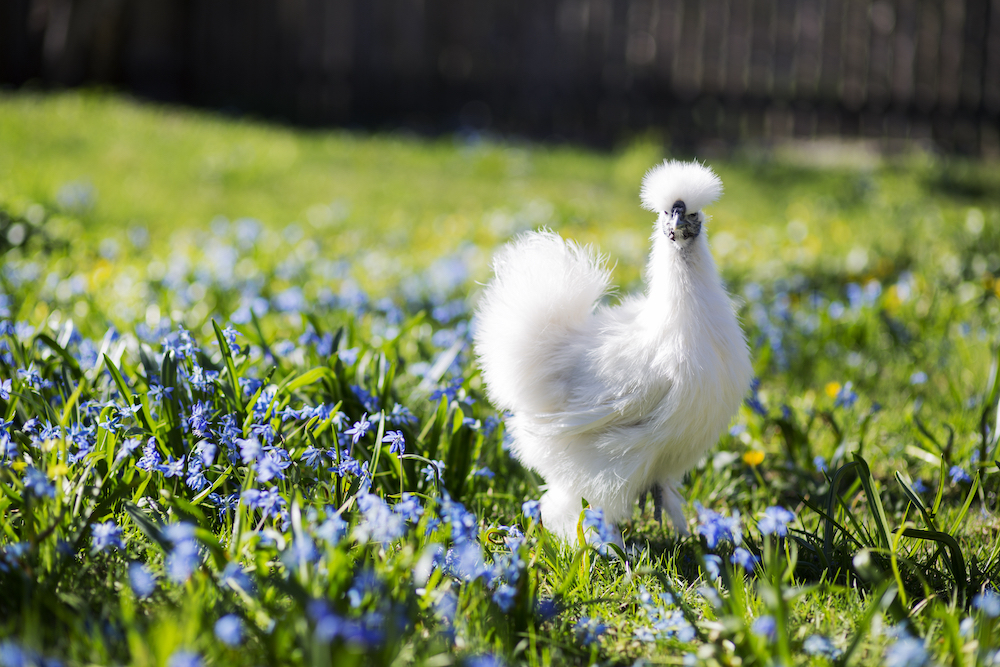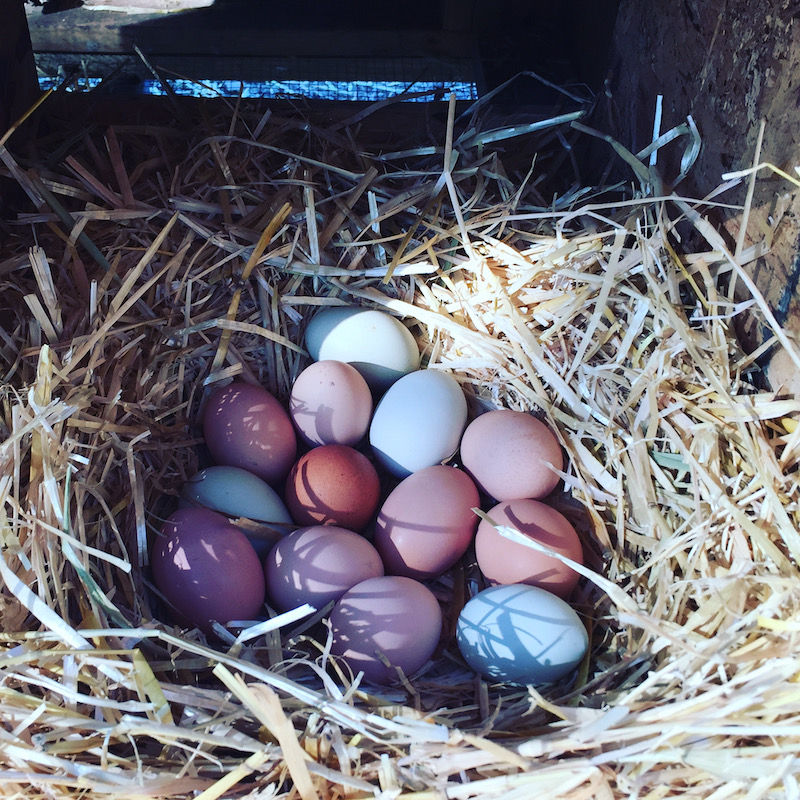Last Updated on February 22, 2024 by AwesomeChickens
Table of Contents
Understanding Egg Production Drops
Raising backyard chickens has become increasingly popular among homeowners looking to enjoy fresh eggs. However, a common issue many chicken keepers face is a sudden or unexplained drop in egg production. Why Are Backyard Chickens Not Laying Eggs? Understanding the factors that influence a hen’s ability to lay eggs is crucial in identifying the root cause of this decrease.
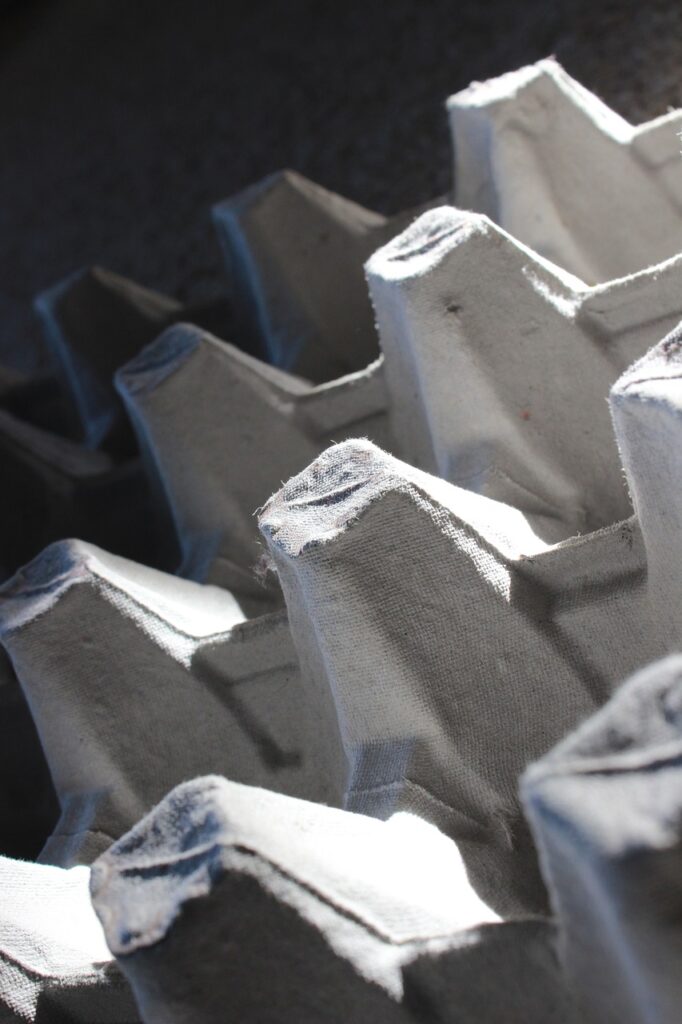
There are several common reasons why a flock of chickens might stop laying eggs. These can range from environmental changes to health issues. Factors such as the chickens’ age, the amount of daylight they receive, their diet, and the presence of predators or stressors in their environment can significantly impact egg laying.
Additionally, certain diseases and parasitic infections can lead to a reduction in egg production. It’s important for chicken owners to observe their flock’s behavior and physical health closely, as these can provide vital clues to the underlying issues affecting their chickens’ ability to lay eggs. Regular monitoring and maintenance of optimal living conditions are necessary steps to encourage a steady supply of eggs from a backyard flock.
Understanding Chicken Biology and Egg Production
Chickens have complex biological systems that influence their egg production. Key factors include their age, life stages, and physiological health. Proper attention to these details can help diagnose why hens may not be laying.
The Impact of Age and Life Stages on Laying
Chickens typically begin laying eggs, known as pullets, at about 5 to 6 months of age. Peak production typically occurs in the first year, and then egg laying gradually decreases. As chickens reach old age, around 6 to 8 years, they often stop laying altogether. Life stages such as molting, the period when chickens lose old feathers and grow new ones, can temporarily halt egg production to allow energy to be redirected towards feather regrowth.
| Age & Stage | Impact |
|---|---|
| 5-6 months | Begin laying eggs |
| First year | Peak production |
| 2-3 years | Gradual decline |
| 6-8 years | May stop laying |
Physiological Factors Affecting Egg Production
Several physiological factors can impact a hen’s ability to lay eggs. Hormonal fluctuations are natural and can cause a hen to become broody, meaning she wants to hatch her eggs rather than continue laying. Additionally, the health and breed of the chicken play crucial roles; some breeds are more prolific layers than others. Underlying health issues, poor nutrition, or stress can all lead to reduced egg production.
| Physiological Factors | Effects |
|---|---|
| Hormonal response | Can lead to broodiness |
| Health status | Directly impacts laying ability |
| Breed differences | Varying laying capacities |
| Environmental stress | Can decrease egg production |
Diet and Nutrition’s Role in Egg-Laying
Adequate diet and nutrition are critical to ensure healthy egg-laying in backyard chickens. Poor nutrition can directly impact egg production and quality.
Essential Nutrients for Optimal Laying
Chickens require a variety of nutrients to lay eggs efficiently. Protein is particularly essential for egg production, as it is the main building block of the egg’s structure. Layer feed typically contains about 16% to 18% protein, which is ideal for egg-laying hens. Calcium also plays a significant role in the diet of laying hens; it is crucial for forming strong eggshells. A lack of adequate calcium can lead to weak shells or shell-less eggs.
- Key Nutrients for Egg-Laying:
- Protein: 16-18% of diet
- Calcium: 3.25-4.50 grams per hen per day
- Phosphorus: Crucial for calcium usage
- Vitamins: A, D, E, and B complex
- Minerals: Such as manganese and zinc
Offering fresh water daily is just as important as solid nutrition. Chickens need clean water to process nutrients and create eggs. If water is contaminated or scarce, egg production may slow or stop altogether.
The Consequences of a Poor Diet
Poor nutrition can lead to a significant decrease in egg production. When chickens have a diet low in protein or other essential nutrients, their bodies cannot produce eggs at the typical rate. Treats can be a welcome supplement to their diet but should not exceed 10% of their total food intake, as an excess can disrupt their balanced diet.
- Effects of Poor Nutrition:
- Reduced egg quantity and quality
- Nutritional deficiencies
- Impaired growth and feathering in young birds
In summary, optimizing the diet for backyard chickens is paramount for maintaining high levels of egg production and overall health.
Environmental and External Factors
The productivity of backyard chickens is significantly influenced by environmental and external factors. These elements can disrupt the natural egg-laying process, resulting in lower egg yield.
Seasonal Variations and Light Exposure
Chickens’ egg production aligns closely with the amount of daylight they receive. During shorter days in autumn and winter, there is less daylight, leading to decreased laying of eggs. Egg production is optimized when chickens experience approximately 14 to 16 hours of light daily. To counteract natural light fluctuations, artificial lighting can be introduced into the chicken coop to maintain consistent light exposure, thus encouraging continuous egg production.
Stressors and Behavioral Dynamics
Stress significantly impacts egg-laying in chickens. Factors causing stress include extreme temperatures, either hot or cold, and overcrowding within the flock. Stressful environments can lead to disruptions in the pecking order and trigger behaviors like feather-pecking and aggression. Additionally, sudden changes, such as the introduction of new additions to the flock, can cause temporary declines in egg production as birds readjust the social hierarchy.
Predators and Safety Concerns
The presence of predators can cause fear and distress in a chicken flock, suppressing their inclination to lay eggs. A predator-proof chicken coop ensures the birds’ safety and comfort. Regular coop and nest box inspections are necessary to reinforce the security against potential threats. Environmental enrichment can also help reduce stress induced by predators, indirectly supporting the chickens’ ability to lay eggs consistently.
Health and Wellness Issues
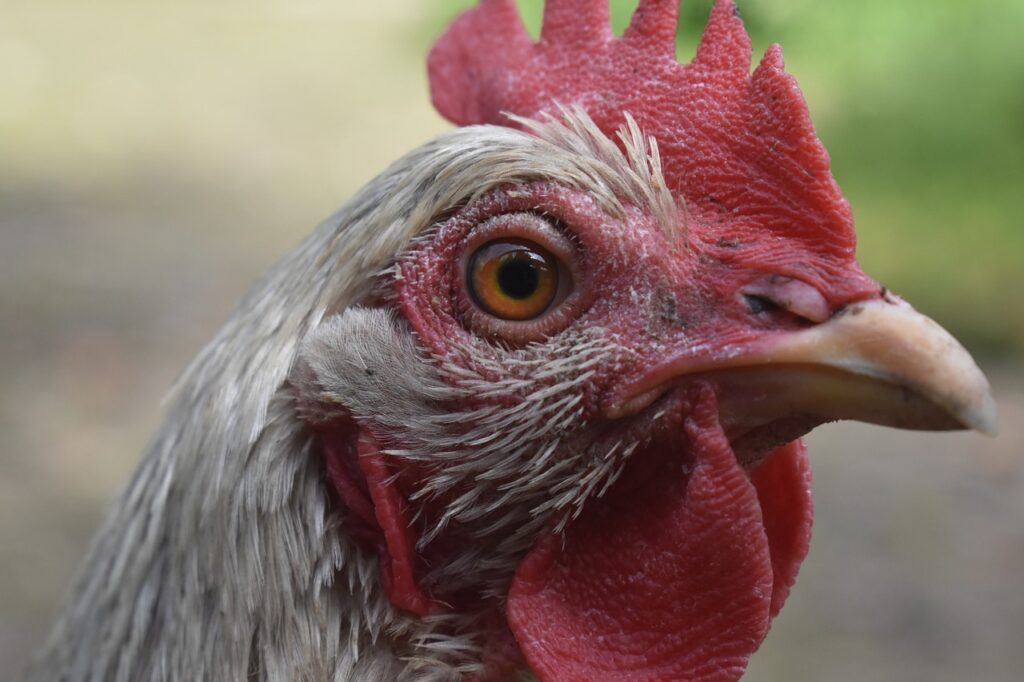
A healthy chicken is a productive member of the backyard flock, regularly laying eggs. However, various health and wellness issues can disrupt this consistency, leading to a decrease or cessation of egg production. These issues range from common illnesses to parasitic infestations, which must be identified and treated in a timely manner for the wellbeing of the chickens and the restoration of their egg-laying capabilities.
Common Illnesses and Ailments
Chickens afflicted with health issues may stop laying eggs. Illnesses such as respiratory infections, egg binding, and reproductive system problems can cause significant stress to the birds, interfering with their egg-laying. Egg bound, a condition where an egg gets stuck in the hen’s oviduct, is a serious ailment and requires immediate attention. Feather loss, not necessarily a disease but often a symptom of other health issues or stress, can also be a manifestation of an unwell hen. Observing the flock for symptoms like lethargy, abnormal droppings, or a decrease in appetite is crucial, as these can indicate underlying health problems.
- Symptoms of Illnesses:
- Lethargy
- Abnormal droppings
- Reduced appetite
- Audible respiratory distress
- Feather loss
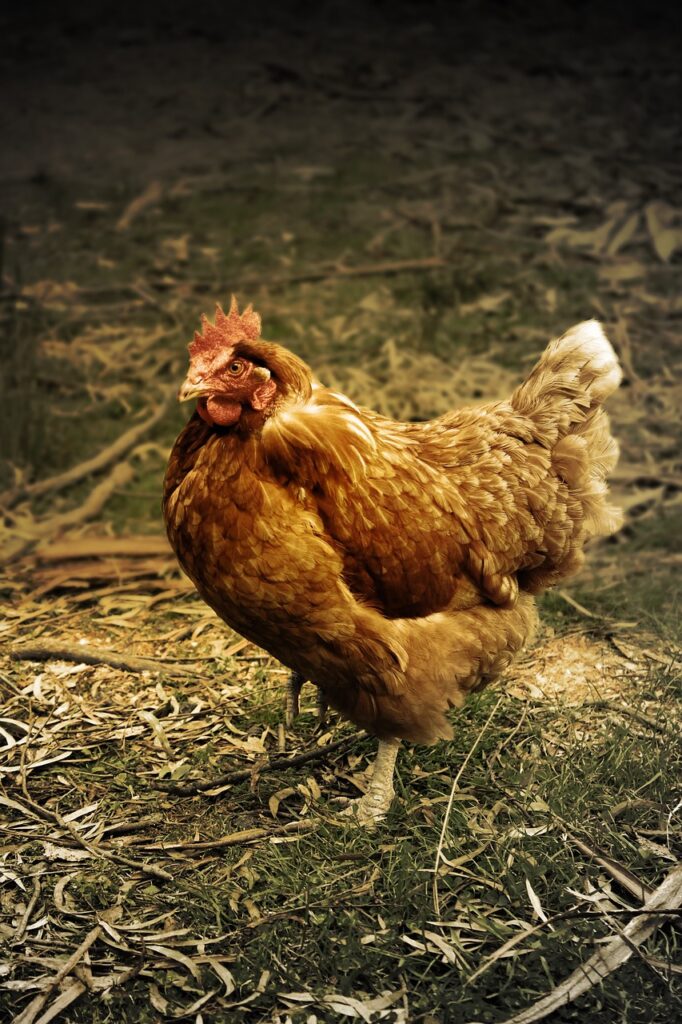
Parasitic Infestations
Parasites such as lice, mites, and worms can profoundly affect a chicken’s health, leading to a direct impact on egg production. Lice and mites cause intense irritation and feather loss, compromising the chicken’s condition. Detection is typically through visual inspection, noting the presence of small insects on the skin or feathers, or by observing the chickens’ behavior, such as excessive preening or agitation. Internal parasites, like worms, are equally destructive, siphoning nutrients and causing internal damage, which can result in a noticeable drop in egg-laying performance. Regular deworming and controlling external parasites are fundamental to maintaining a healthy flock.
- Types of Parasites:
- External: Lice, Mites
- Internal: Worms
- Impact on Chickens:
- Feather loss
- Skin irritation
- Decrease in egg production
- Nutrient deficiency
Maintaining a watchful eye on the flock’s health and promptly addressing signs of sickness or parasitic infestation is essential for ensuring the continued productivity of backyard chickens.
In conclusion, the intricate interplay of various factors significantly influences the egg-laying capabilities of backyard chickens. Understanding these dynamics is essential for chicken keepers to maintain a steady supply of fresh eggs from their flock. By adopting a holistic approach that addresses the diverse aspects affecting egg-laying, chicken keepers can optimize their flock’s health and well-being, ultimately enjoying a consistent supply of fresh eggs from their backyard chickens. Through vigilance, proper care, and understanding, chicken enthusiasts can navigate the challenges of egg production drops and maintain thriving flocks for years to come. This way, you don’t have to ask why are my backyard chickens not laying eggs?



